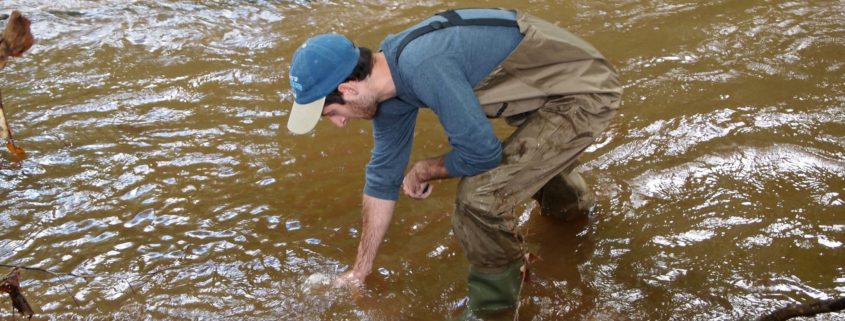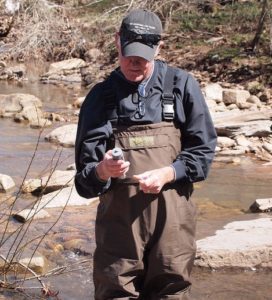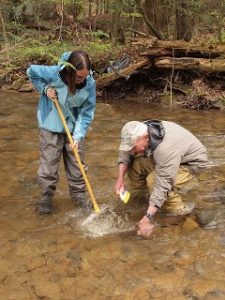How Shale Gas Monitoring Works
Volunteer monitors participating in the shale gas component of the WV-VA Water Quality Monitoring Project are trained to measure water quality data on a regular basis, at least once a month for most sites. Twice a year monitors are asked to send water samples to a certified lab, in a program provided container, for chemical analysis.
- water and air temperature;
- pH – measures how alkaline or acidic the stream is;
- conductivity – measures the waters ability to pass an electrical current;
- turbidity – measures the waters clarity;
- flow (cross-sectional area) – how much water is moving through the stream;
- and visual assessments of the landscape and weather conditions.
Volunteers in the WV Water Quality Monitoring Project have the opportunity to participate in the WV Department of Environmental Protection’s Save Our Streams program. Participants are trained to take biological samples of benthic macroinvertibrates, the critters that live along the stream bed. These organism are sensitive to water quality conditions and can provide valuable information to monitors about the long term health of the streams they monitor.
If you’d like to be notified of upcoming volunteer training opportunities sign-up here.





